Why wait for retirement? I'm living in an RV year-round—here's what it's like and how to make it work for you.
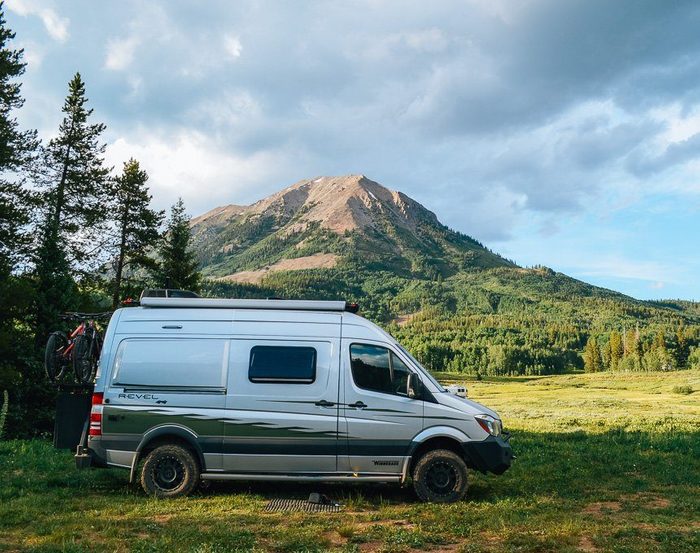
I Live in an RV Year-Round—Here’s What It’s Really Like

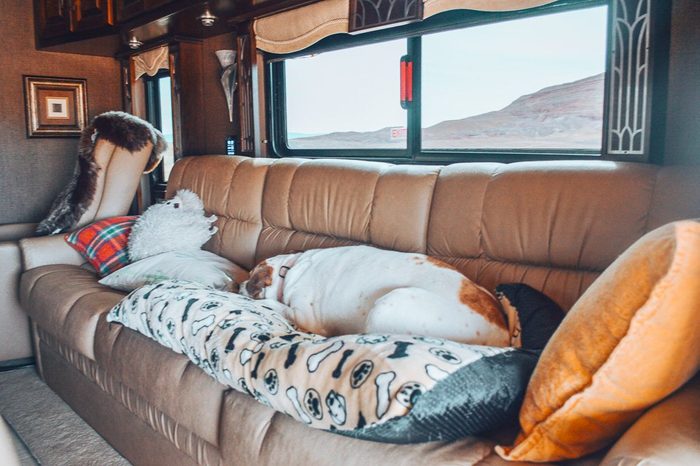
Getting started
Wes and I had just sold our house outside of St. Louis and moved to a town in Colorado where we knew no one. Though we enjoyed our new state—especially all the outdoor activities it had to offer—we were traveling back home for visits pretty often. So initially, the RV was intended for traveling in comfort: We could save money on hotels, travel at a more relaxed pace, avoid packing and unpacking, not overstay our welcome at the homes of family and friends, and be able to take our dogs with us (a big win there). Plus, my husband had always wanted one.
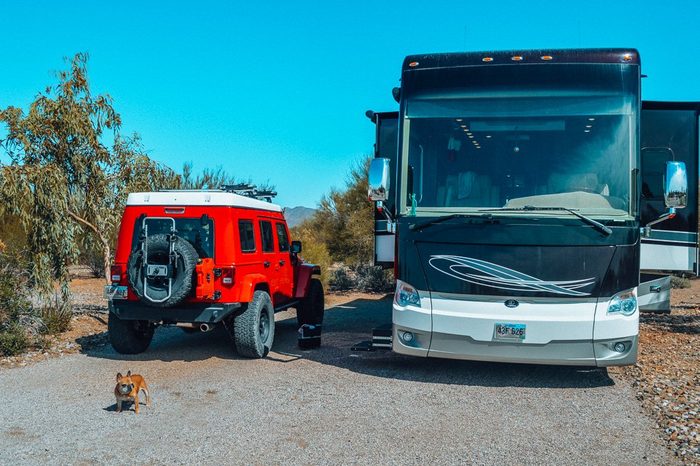
Transitioning to full-time
We bought our first RV in July 2015, and by September of that year, we were already considering living in the RV year-round. Wes and I love traveling and being “location independent,” and luckily, our jobs also allow us to work from anywhere. At first, it did seem like a scary thing to get rid of a “normal” home and live on the road—and many people told us we were crazy—but once we officially made the leap, we never looked back.

Paring down
While some people pursue RV living to save money, that wasn’t our focus. Our motivation was to achieve a lifestyle with more freedom and flexibility. So we gave up our house in Colorado and pared down to just the essentials. Neighbors, friends and family came over and took what furniture and housewares they wanted, and we donated the rest.
At first, we rented a small storage unit—mainly to hold mementos and things from childhood that we did not want to get rid of. But after a few months, we realized how much we hated paying for storage, so we struck a deal with family members who are now holding three small boxes for us.
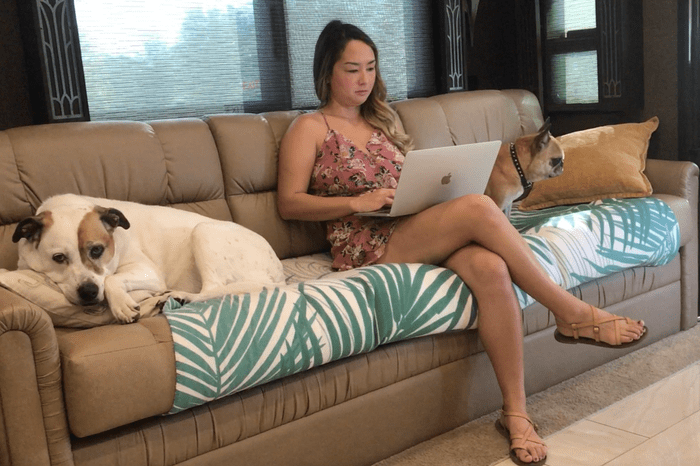
Setting up
Residency is one of the first things we had to establish. We chose Florida because it’s an RV-friendly state. We’re official residents of Florida, so that’s where we register our vehicles, get our driver’s licenses and vote.
Before we took the plunge, I worried about all of life’s little necessities—like the internet! I work remotely, so I had to make sure that I could get online without any hiccups (RV parks are notorious for not having good Wi-Fi). We currently have an AT&T hot spot for the internet. I also have a signal booster from weBoost.
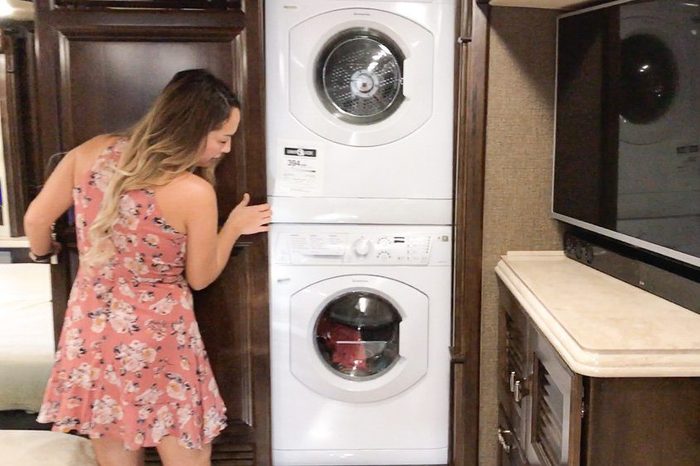
Taking care of details
One of the top questions I get is about how we receive mail while living in an RV. The answer is simple: We use a mail-forwarding company. All our mail gets sent there, and they forward it on to wherever we will be.
Another question I hear often: How will I do my laundry? Some RVs—including ours—have a laundry station. Please don’t put off your RV dreams over worries about mail and laundry, especially when there are easy solutions. You can always do laundry at RV parks or at a laundromat along the way.
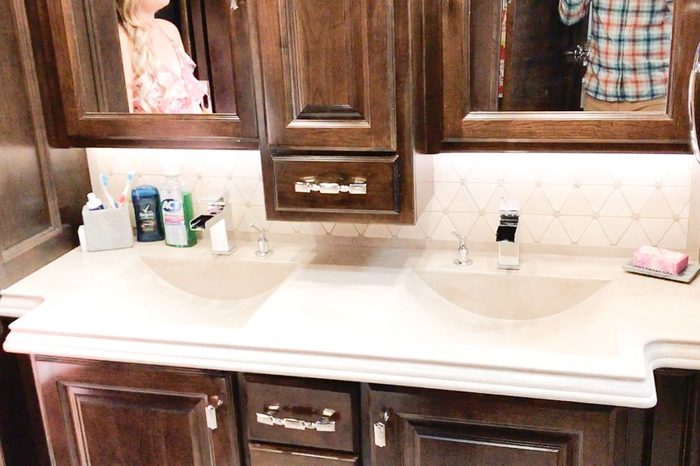
Covering bathroom basics
An RV bathroom can be as big or as small as you want it to be. In fact, the bathroom in our old RV was bigger than the one we’d had in our house; it had dual sinks and a big shower. In our van, the bathroom is much smaller, of course. We have a wet bath, which means that you shower over the toilet. We brush our teeth at the kitchen sink. My husband is the one who dumps the tanks—when we decided to get an RV, I agreed only if I would never have to dump the tanks!
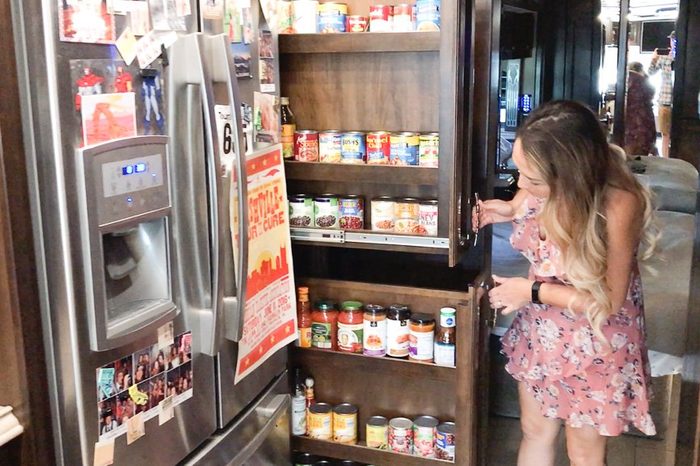
Eating on the road
In many ways, living in an RV year-round isn’t all that different from living in a house, even though you may have less space. Our Winnebago has a full kitchen—including fridge, freezer, microwave and other appliances—so we cook our meals the same way we always did. When we need supplies, we just search for the best grocery store in the area. Sometimes we drive, other times we may grab our backpacks and ride our bikes.
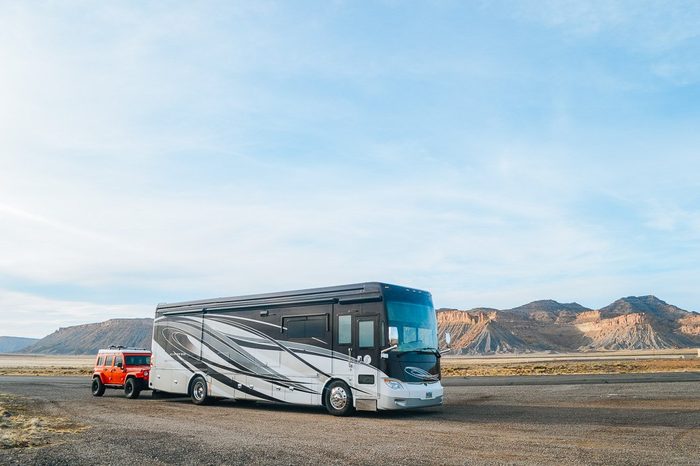
Hitting the road
When we first started, the most challenging part was simply learning everything there is to know about RV living. That alone can feel overwhelming. From understanding how to best use your battery bank to planning where to stay and so on, there’s a lot to learn. Most RV manufacturers recommend that you start with short trips until you get the hang of it.
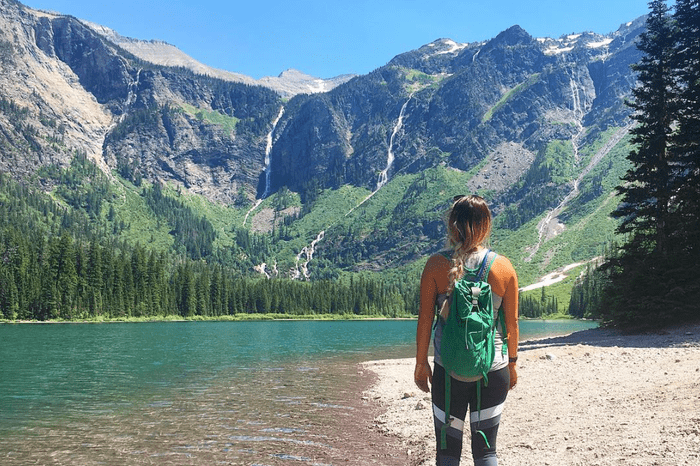
Taking time for yourself
People always ask if Wes and I hate each other. Nope! But it’s true that living in an RV year-round can be challenging if you’re sharing the space with others (a partner, in my case). You have to have good communication. Face it: Being mad at each other in a small space is no fun for anyone.
One secret to maintaining a happy marriage is to have your own hobbies. When you spend 24/7 together, you need time to yourself. I like to go on hikes or bike rides by myself, take the dogs out on long walks, hang out with friends, go on solo trips and so on.
When the weather was bad and we had to stay inside, we passed the time reading, watching Netflix, organizing and the like—everything you do in a regular home. Then there were all the little home-repair tasks; things do break when you’re always rattling down the road.
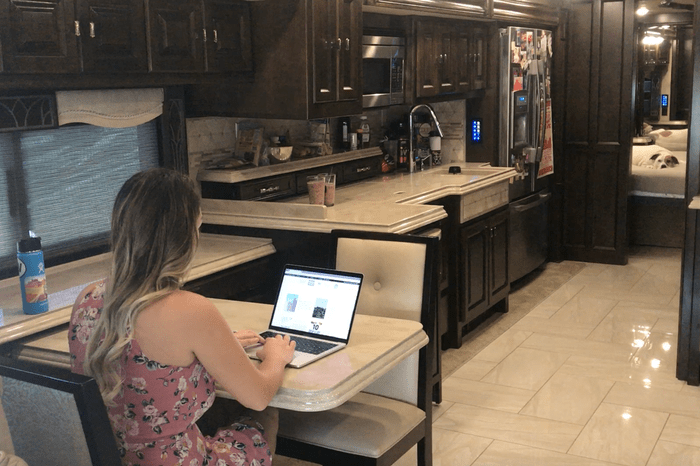
Earning a living
We both spend a good deal of time working. Luckily, we have jobs that can be done from anywhere. There are so many jobs available today that make living in an RV before retirement definitely doable. Most of the people we’ve met while RVing still work and earn a great income doing so. I run a website, Making Sense of Cents, and tend to do all my work at the dining table.

The best part about RV living is…
I absolutely love RVing, so my list of “pros” is long. I love being able to bring my home with me everywhere. There are never any worries about having left something important behind. I love being able to park my home right next to the best hiking and biking trails, being able to change the view from the windows, follow the good weather and explore off-the-beaten-path destinations.
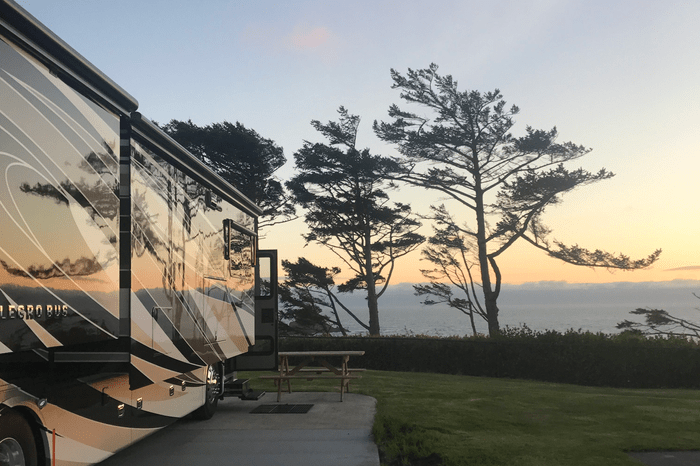
The most challenging part about RV living is…
The biggest “con” of RV living is the planning that’s necessary. You do have to plan ahead where you are going to park because sometimes places are full—take national parks during the summer, for example.
As someone who is living in an RV year-round, there is a lot of planning, moving and trying new things involved. So once you arrive somewhere, it’s nice to stay a while and just sit still. That’s why I recommend that RVers park their RV every once in a while (like for winter) or move a little slower.
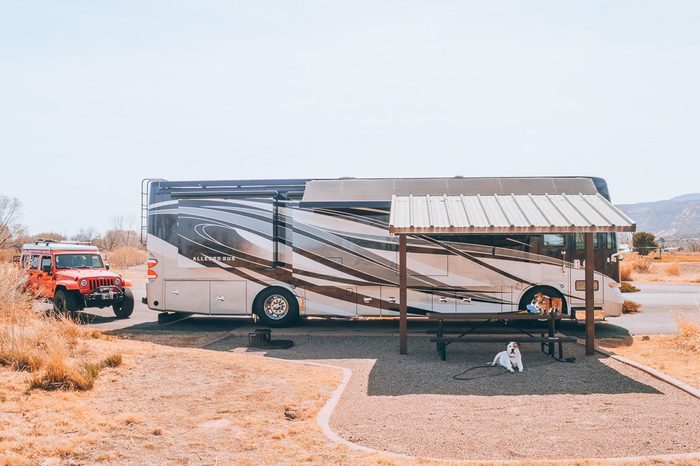
Tips for RV shopping
If you’re tempted to try RVing, you can start by renting an RV at a site like RVShare or Outdoorsy. First, make a list of everything you want in your RV; that will help you narrow down the options. Don’t forget about gas mileage—it takes a really big bite out of the budget. Our Winnebago got 14 to 15 mpg, and that was good; many others get less.
Finally, when you’re ready to buy, definitely don’t pay full price. New RVs tend to be marked up a lot, and sellers expect negotiation. You can often get 20% to 35% off a new RV.
Why trust us
At Reader’s Digest, we’re committed to producing high-quality content by writers with expertise and experience in their field in consultation with relevant, qualified experts. We rely on reputable primary sources, including government and professional organizations and academic institutions as well as our writers’ personal experiences where appropriate. For this piece on living in an RV year-round, we tapped Michelle Schroeder-Gardner to share her personal experiences with RV life. We verify all facts and data, back them with credible sourcing and revisit them over time to ensure they remain accurate and up to date. Read more about our team, our contributors and our editorial policies.
Sources:
- Making Sense of Cents
- RVShare: “Find the Perfect RV Rental”
- Outdoorsy: “RV Rentals”



















